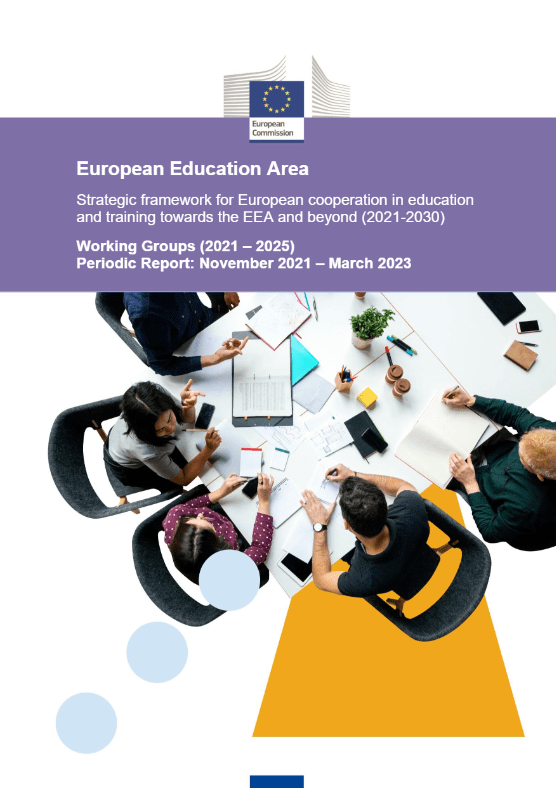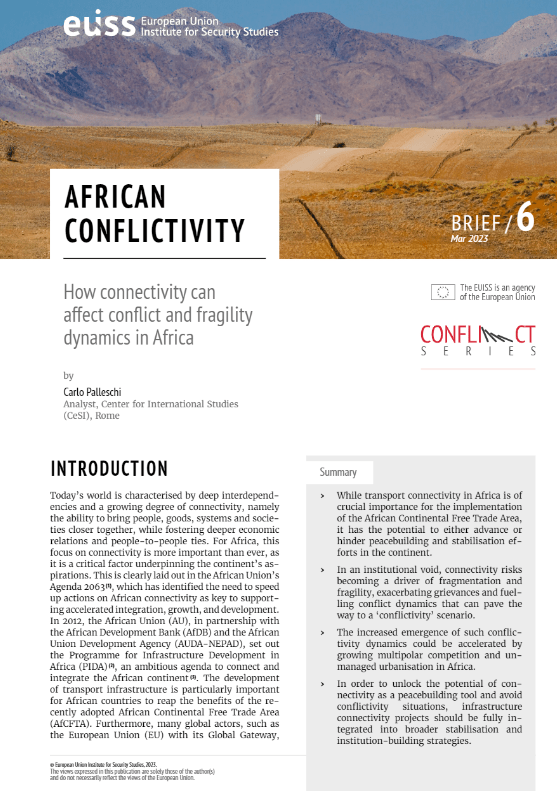
CDE Almería - Centro de Documentación Europea - Universidad de Almería
Centro de Documentación Europea de la Universidad de Almería
Cultura y Educación
Documentación comunitaria en las áreas de Cooperación Internacional Universitaria, Digitalización en el Ámbito Educativo, Espacio Europeo de Educación Superior y Patrimonio Cultural Europeo. Contiene también las últimas noticias, mediateca y boletines relacionados con la materia.
Estás aquí: Fondo Digital CDE > Cultura y Educación

This Periodic Report provides an overview of the activities of the Working Groups (WGs) under the strategic framework for European cooperation in education and training towards the European Education Area and beyond (2021-2030) from the beginning of the current mandates in November 2021 until end of March 2023 and presents tentative activities and outputs foreseen up until the end of 2023. It also sets out key features of some of the WGs interim deliverables and main outputs so far, provides information on the synergies as well as on the WG activities as part of the EU Education Solidarity Group for Ukraine, followed by some first observations on the functioning of the WGs during this first phase of their mandates.
[Leer Más]El Plan Escolar de la UE, aplicable desde 2017, apoya la distribución de frutas, hortalizas, leche y productos lácteos a los escolares desde la guardería hasta la enseñanza secundaria. También incluye actividades educativas para aumentar el consumo de estos productos y ayudar a inculcar hábitos alimentarios saludables, al tiempo que se reconecta con la agricultura. La Comisión Europea (CE) puso en marcha una revisión del Programa Escolar de la UE como parte de la Estrategia «De la Granja a la Mesa», con el objetivo de crear un entorno alimentario favorable que facilite la elección de una dieta sana y sostenible. Para apoyar a la CE en la revisión del Régimen, el estudio se centró en el análisis de dos fuentes principales de información: la consulta pública (CP) y los informes de evaluación de los Estados miembros para 2017-2022.
[Leer Más]While transport connectivity in Africa is of crucial importance for the implementation of the African Continental Free Trade Area, it has the potential to either advance or hinder peacebuilding and stabilisation efforts in the continent. In an institutional void, connectivity risks becoming a driver of fragmentation and fragility, exacerbating grievances and fuelling conflict dynamics that can pave the way to a ‘conflictivity’ scenario. The increased emergence of such conflictivity dynamics could be accelerated by growing multipolar competition and unmanaged urbanisation in Africa. In order to unlock the potential of connectivity as a peacebuilding tool and avoid conflictivity situations, infrastructure connectivity projects should be fully integrated into broader stabilisation and institution-building strategies.
[Leer Más]- « Anterior
- 1
- …
- 161
- 162
- 163
- 164
- 165
- …
- 5.922
- Siguiente »
Noticias relacionadas
Boletines CDE
- BOLETÍN INFORMATIVO EDUCACIÓN Y CULTURA EN LA UE (Nº9)
- BOLETÍN INFORMATIVO EDUCACIÓN Y CULTURA EN LA UE (Nº8)
- BOLETÍN INFORMATIVO EDUCACIÓN Y CULTURA EN LA UE (Nº7)
- BOLETÍN INFORMATIVO EDUCACIÓN Y CULTURA EN LA UE (Nº6)
- BOLETÍN INFORMATIVO EDUCACIÓN Y CULTURA EN LA UE (Nº5)
- BOLETÍN INFORMATIVO EDUCACIÓN Y CULTURA EN LA UE (Nº4)
- BOLETÍN INFORMATIVO EDUCACIÓN Y CULTURA EN LA UE(Nº 3)
- BOLETÍN INFORMATIVO EDUCACIÓN Y CULTURA EN LA UE (Nº 2)
- BOLETÍN INFORMATIVO EDUCACIÓN Y CULTURA EN LA UE (Nº1)








